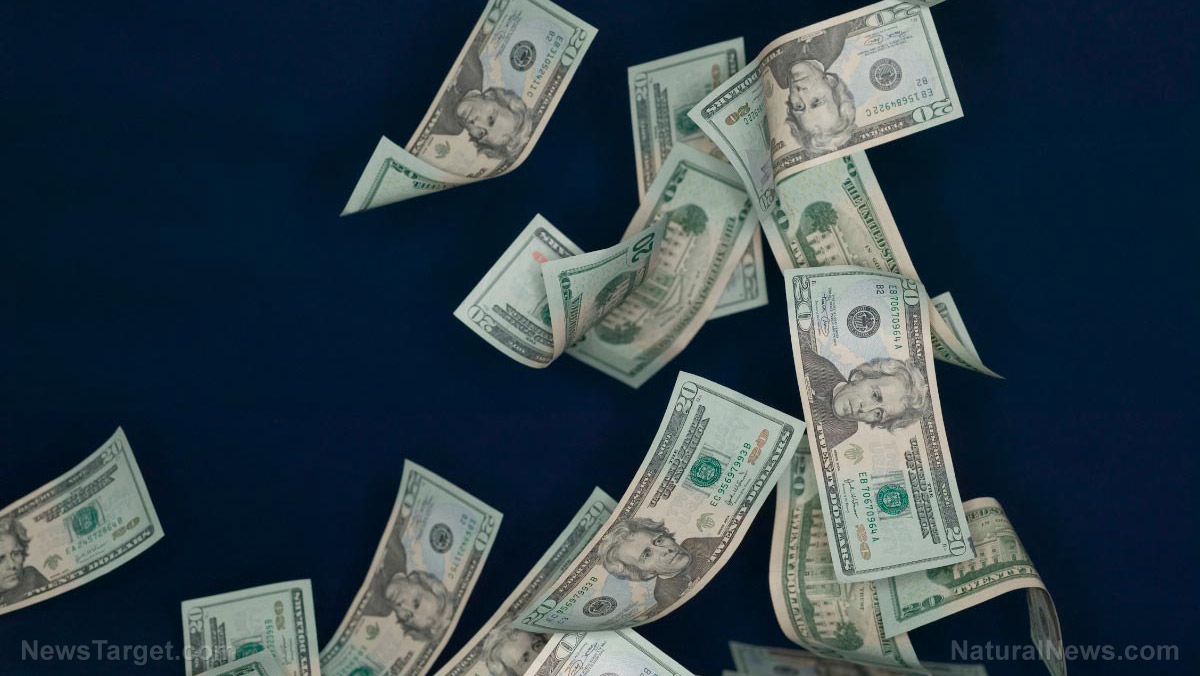Potential BRICS expansion could mark end of dollar as world’s pre-eminent currency
02/27/2023 / By Arsenio Toledo

BRICS, the alternative economic alliance set up to challenge the International Monetary Fund (IMF), is expanding. Once it becomes strong enough, it could very well topple the United States dollar’s status as the world’s pre-eminent currency.
The organization, made up of Brazil, Russia, India, China and South Africa, is expected to announce sometime this year regarding whether it will admit new members. The group’s current members are also expected to formulate proper criteria that these prospective nations would have to meet in order to join.
Multiple nations have already formally asked to join the economic union, including Algeria, Argentina, Bahrain, Egypt, Indonesia, Iran, Saudi Arabia, the United Arab Emirates and Turkey. BRICS Ambassador Anil Sooklal of South Africa also said two nations from East Africa and West Africa, respectively, have expressed their interest in joining. (Related: IMF trying to bribe Egypt away from BRICS with new loans.)
“There are over a dozen countries that have knocked on the door [of BRICS],” said Sooklal. “We are quite advanced at looking at a further group of new members.”
In an episode of “World Alternative Media,” host Josh Sigurdson noted that Saudi Arabia joining BRICS would mark “the end of the dollar.” Meanwhile, financial adviser Tim Picciott noted that the dollar’s demise would likely come when the Federal Reserve takes on too much debt for it to handle.
“This whole system was set up to control people, but they always knew that eventually, whoever is the world reserve currency, because the system is backed by debt, that eventually it will get out of control,” he said.
Bigger BRICS could act as an effective counterweight against West-backed IMF
The potential expansion of BRICS comes as nations all over the world seek to bolster their own regional and international alliances to push back against the massive influence of Western nations led by the United States.
“[We are living in] the world between orders. We don’t know what the new order is going to be,” said Sooklal. “We believe we need to play a role in ensuring that we have a more equitable, inclusive, transparent, global architecture.”
BRICS accounts for 42 percent of the world’s population. Despite this, its members have less than 15 percent of the voting rights in the IMF and the World Bank.
But before the five nations of BRICS can expand their number, differing views on which nation or nations to admit need to be resolved.
Russia, for example, has expressly backed Saudi Arabia’s potential entry, which could prevent Iran from participating due to its ongoing cold war with the Saudis. China wants to admit its closest allies, which other BRICS nations believe could dilute their influence in the bloc.
Brazil, while supportive of expansion, does not want one region of the world to have too much influence over the others. It is wary of accepting too many new members from Asia while remaining the only South American nation in the bloc.
India does not want countries to be admitted solely on the endorsement of existing members and instead wants a formal process established so that prospective nations have to meet certain criteria to be admitted.
Despite these problems, Sooklal said South Africa, the group’s current chair, will have no problem resolving each nation’s concerns in upcoming summits.
“Very often I am asked the question: You are so diverse in so many ways, how is it that you’ll function,” said Sooklal. “My extended answer has been: There are far more points of convergence than divergence.”
Learn more about the waning strength of the American dollar at DollarDemise.com.
Watch this episode of “World Alternative Media” host Josh Sigurdson interviews financial advisor Tim Picciot about the expansion of BRICS and the implications of this on the status of the dollar as the world’s pre-eminent currency.
This is from the channel World Alternative Media on Brighteon.com.
More related articles:
Sources include:
Submit a correction >>
Tagged Under:
BRICS, bubble, chaos, collapse, currency crash, currency reset, De-dollarization, dollar, dollar demise, economic collapse, economics, economy, finance, financial crash, IMF, International Monetary Fund, market crash, money supply, world reserve currency
This article may contain statements that reflect the opinion of the author
RECENT NEWS & ARTICLES
COPYRIGHT © 2022 FinanceRiot.com
All content posted on this site is protected under Free Speech. FinanceRiot.com is not responsible for content written by contributing authors. The information on this site is provided for educational and entertainment purposes only. It is not intended as a substitute for professional advice of any kind. FinanceRiot.com assumes no responsibility for the use or misuse of this material. All trademarks, registered trademarks and service marks mentioned on this site are the property of their respective owners.


















